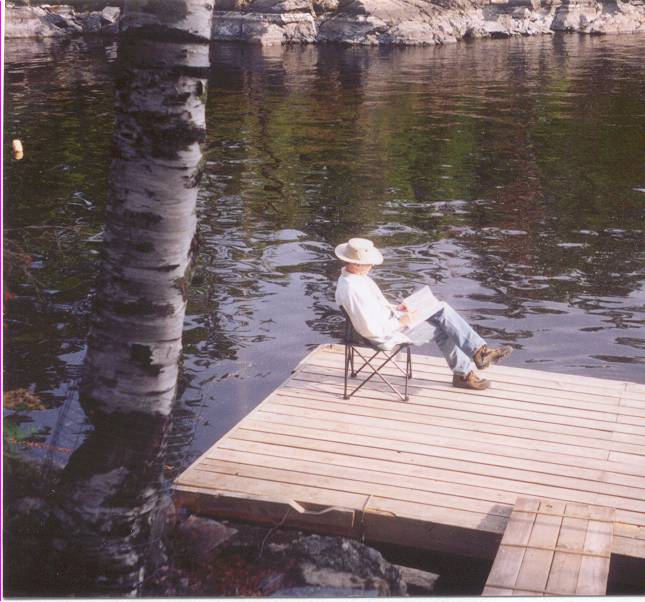The idea for Who Knows Why the Redbird Sleeps in the Snow: A Grammatical
Affair!? came
to me
when
I noticed
that
a
character named Lester
k ept
appearing in my columns
on
effective writing published by the
Minneapolis Star Tribune
and other newspapers.
ept
appearing in my columns
on
effective writing published by the
Minneapolis Star Tribune
and other newspapers.
Part novel, memoir,
poetry, and previously published columns, this literary romp will delight
booklovers, writers, language nerds, and English majors alike with its
many references to literature and writers – some subtle, as when a
shipmate is heaved into “the long-shining waters” of Lake Superior; some
playful, as when the origins of rhymed poetry are expounded upon by the
narrator’s three-year-old son; and others obvious, as when Shakespeare's
ill-fated Romeo and Juliet declare their love for one another or when
spring arrives instantaneously on Lake Nokomis in much the same way
Longfellow and Thoreau would portray its coming.
The plot follows the life of a
newspaper columnist who is devoted to ridding the world of misplaced
commas, noun stacks, and dangling participles, a man perplexed by the
existential question of how language at once illuminates and creates its
own reality.
In his quest for adventure, the narrator teams up with
Josephine (who goes by Joe), a Kentucky horse trainer whose life is
forever changed by a two-paragraph story about poverty, mice, and fathers
in Sandra Cisneros’ The House on Mango Street. Together the
narrator and Joe dream of the day when their black stallion, Dangling
Participle, will bring them fame and fortune. Whether sailing Bart
Sutter’s stormy sweetwater sea or presenting a paper in M.F.K. Fisher’s
Aix-en-Provence titled “Lake Wobegon:
Mythical Place and the American Imagination” (subsequently published in
American Studies),
the narrator seeks to capture the spirit of place in both natural and
unnatural settings, where language presents
herself as a beautiful, seductive, green-eyed woman who challenges his
assumptions about grammar, syntax, and meaning.
Partly for fun, but also for easy
reference, the appendices include a list of embedded columns with their
dates of publication as well as an index to writing topics and literary
allusions.
Please let me know if you'd like me to send you a
publication notice.
![]()